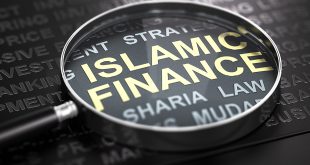Islamic politics will soon be banned in Bangladesh – third largest Muslim nation with 150 million populations. According to government sources, government is on the process of restoring secularist democracy in the country by scrapping several provisions in the Constitution of the country, which were incorporated mostly by former military regimes. As possible pre-action of this plan, government recently banned publication and distribution of books by Moulana Abul Ala Moududi, who is the founder and formulator of Jamaat-e-Islami's politics in the region as well in the world.
Once the government revives Constitution of 1971, all forms of Islamist politics as well as formation of any groups on the basis of religion will turn illegal. Moreover, the government will remove Islam from being the 'State Religion' of Bangladesh as per the later amended constitutional provisions by the military dictators. At this junction, may are raising question, as to whether the secular Bangladesh will also ban Islamic or Sharia banking in the country.
Sharia banking started in Bangladesh since 1983, when politics of Jamaat-e-Islami re-started. This party was stopped from any political activities in Bangladesh, because Jamaat opposed to war of independence of the country.
The first ever Islamic or Sharia banking in Bangladesh started under the banner of Islamic Bank Bangladesh Limited, which is considered to be an economic subsidiary of Jamaat-e-Islami. The bank started its operation on March 13, 1983 with an authorized capital of TK. 10,000 million [US$ 1 = TK. 70], which has in past 27 years invested more than TK. 255,178 million in various projects and businesses in the country. It has now more than 500 branches in the entire country, with a number of overseas outlets in several Middle Eastern countries.
Following the huge success story of Islamic Bank Bangladesh Limited, a number of private banks opted for either Sharia banking or at least opened several branches with exclusively Sharia banking provisions. According to information availed from Bangladesh Bank [Central Bank of Bangladesh], more than forty-five per cent of the total financial institutions in the country have already gone under Sharia finance system, while many are on the same process. Prominent Sharia banks in Bangladesh include, Al-Arafah Islami Bank, First Security Islamic Bank, ICB Islamic Bank, Export-Import Bank of Bangladesh, Shahjala Islamic Bank, Arab-Bangladesh Bank [with Sharia branch], Standard Chartered Bank [Saadiq Islamic Banking Branch], Bank Asia etc.
Even Western banks such as Standard Chartered or Citibank have already stepped into Sharia-compliant microfinance banking for the needs of millions of Muslims, left financially excluded because of Islam's prohibition on interest.
Citi Islamic Investment Bank E. C. [CIIB] was incorporated in July 1996 in Bahrain, as a 100% owned subsidiary of Citicorp Banking Corporation. CIIB operates as the dedicated Islamic Banking vehicle of Citi and is continuing the pioneering and innovative role that Citi has been playing in the industry for almost 25 years, through Islamic Finance windows within Citi.
Citi Islamic Investment Bank's core Islamic banking business has been the origination, structuring and distribution of Islamic banking transactions in trade finance, structured trade finance, leasing, fund management and Islamic securities. Issuers from many countries including Brazil, Korea, Turkey, Egypt, Mexico, South Africa, Pakistan, India, and Bangladesh have been introduced to the Islamic banking market. CIIB has achieved an annual turnover of several billion US Dollars in Islamically structured assets by drawing on its knowledge of the Islamic banking market, its strong investor relations and the global presence of Citi. Going forward, with a proven track record, a reputation for product innovation and an even stronger global Franchise of Citi, CIIB remains uniquely positioned to best serve the needs of Islamic customers through diverse investment alternatives.
In Britain, Islamic and Sharia banking is spreading wings like bonfire especially in past five years. A report by International Financial Services London reveals that Britain's Islamic banking sector is now bigger than that of Pakistan. The study says that the UK has by far the largest number of banks for Muslims of any western country.
The UK now has five fully 'Sharia-compliant' banks – providing products which prohibit interest payments and investment in alcohol or gambling firms in accordance with Islamic Sharia law – while another 17 leading institutions including Barclays, RBS and Lloyds Banking Group have set up special branches or subsidiary firms for Muslim clients.
The $18billion [£12bn] in assets of Britain's Islamic banks are said to dwarf those of Muslim states such as Pakistan, Bangladesh, Turkey and Egypt. And there are also 55 colleges and professional institutions offering education in Islamic finance in Britain – more than anywhere else in the world. This development has been actively pushed by the government. When he was Chancellor of the Exchequer, Gordon Brown declared that he wanted London to become the global centre of Islamic banking.
The spread of Sharia banking in Britain and America is a significant part of the attempt to Islamise Britain and America. Acceptance of Sharia finance furthers the Islamist objective of gradually legitimising Islamic Sharia law more generally in the west.
The point which is being missed is that all who use it must conform to the dictates of Sharia law. Sharia financial institutions may not be making this clear now – they don't want to frighten people away – but at some point that IOU of Sharia-compliance will be called in. This is how Sharia-compliance will be spread to both the Muslim and non-Muslim population.
Any Western institution that endorses Sharia-compliant products therefore effectively endorses the extremist ideology behind it of conquering the west for Islam, whether it knows it or not.
The most important point to grasp is that Islam recognises no authority superior to Sharia. Sharia banks will therefore not recognise the superior authority of the law of the land. When trillions of pounds and dollars are locked into them, who will argue with them?
Even more troubling is the potential cover provided by Sharia finance for the financing of terrorism. Sharia requires Muslims to tithe a percentage of their money to charity, called 'Zakat'. There is roughly US$ 3.5 billion donated by Muslims as 'Zakat' [Islamic Charity]. Using this fund is most appropriate, as per provisions of Islam is in spreading the words of this religion. For this reason, a huge segment of ZakatA tax that is the duty and social obligation of every Muslim. This as the fourth Pillar of Islam. fund goes into patronizing pro-Islamist or even pro-Jihadist media in the world. In a poor and least developed country like Bangladesh, the annual amount of ZakatA tax that is the duty and social obligation of every Muslim. This as the fourth Pillar of Islam. paid by the rich classes is exceeding US$ 400 million.
Charity in Islam is more like solidarity. So some of this money donated to Islamic charities may well find its way to organisations promoting jihad and supporting suicide bombing including Hamas, Hezbollah, the families of Palestinian suicide bombers and Islamist madrassas.
Post Disclaimer | Support Us
Support Us
The sailanmuslim.com web site entirely supported by individual donors and well wishers. If you regularly visit this site and wish to show your appreciation, or if you wish to see further development of sailanmuslim.com, please donate us
IMPORTANT : All content hosted on sailanmuslim.com is solely for non-commercial purposes and with the permission of original copyright holders. Any other use of the hosted content, such as for financial gain, requires express approval from the copyright owners.
 Sri lanka Muslims Web Portal Sri Lanka Muslims News Center
Sri lanka Muslims Web Portal Sri Lanka Muslims News Center



